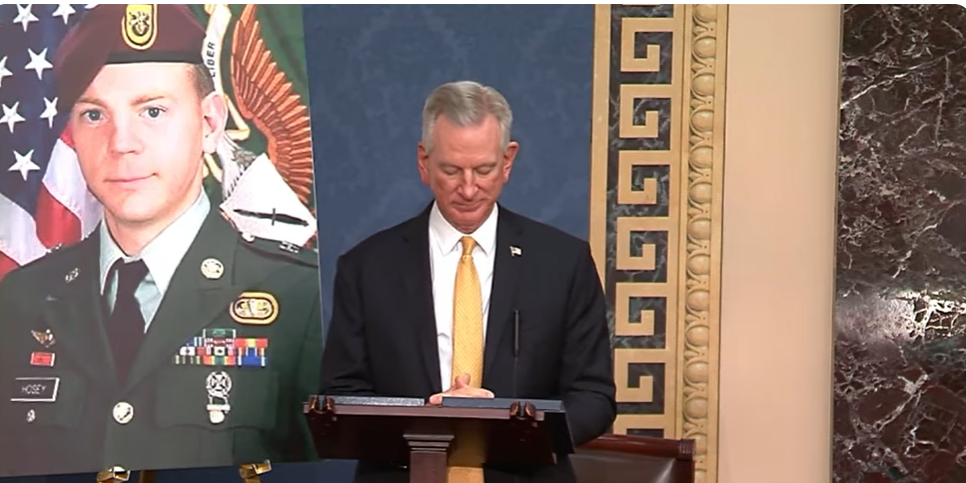Our military is currently facing the most significant recruiting challenges I have seen in my lifetime, posing serious threats to our national security, which is especially alarming in light of the conflicts brewing today with multiple countries.
On the surface, it may seem that this is, at least in part, due to the fact that our military members have spent the better part of the last two decades at war, but I don't think that's the main factor. As a military veteran whose family has a long history of service to our country, I can say with absolute confidence that this is not an issue for the vast majority of our military members, who have always answered the call to duty, even when it put their lives at risk.
The real problem is that while veterans are certainly better equipped to transition back into civilian life than previous generations, there is still a long way to go. In fact, it is hard to get people excited about serving in the military, not only because they miss out on a huge income while serving, but also because most are ill-prepared for their transition back into civilian life. This is even more of an issue in today's economy, where soaring inflation is making it hard for most Americans to make ends meet. For many, it's a simple matter of whether they can provide for their families.
As a service member who just retired and went through the transition process, I think I have a pretty accurate view of the flaws in the system, and as someone who began preparing long before I retired, I also think I have a solid plan for helping my fellow service members become better prepared.
The solution is to combine government and private sector resources.
We need to start long before service members begin the discharge process by providing career counseling by trained personnel to advise them on potential military and civilian careers from the moment they arrive at their first duty station. This would give service members a chance to start preparing much earlier, increasing their chances of success in the future, whether they stay in the military or return to civilian life. It would also give these service members much more time to address the details of their transition as they approach the EAS.
At the same time, the military needs to build relationships with the private sector to provide more resources to veterans. Today, there are tens, maybe hundreds of thousands, of organizations in the United States dedicated to serving veterans, and this network can connect veterans with almost anything they need, including career, entrepreneurial, financial and even health resources and support.
Some organizations have taken the initiative to reach out to the veteran community themselves. Johns Hopkins University is one such institution that recently launched a movement to help veterans find high-paying jobs in real estate. The centerpiece of this effort is, you guessed it, a master's-level real estate and infrastructure program. But the university also hosts a series of events where attendees have the opportunity to learn from industry leaders, network with real estate professionals, and meet with recruiters and career counselors, all at no cost to them.
Speaking at the inaugural event, Dr. David Phelps said, “Veterans already have the discipline and work ethic that is lacking in today's workforce, so I think the tough environment of the real estate industry is a great fit for veterans. Veterans have an affinity for the industry, they're more mature, and they've already been through tough times in life. At the end of the day, they get up every day and put in the work. The character traits that veterans bring are great assets to employers.”
Army veteran and panelist Jason Anderson added, “Dramatic changes in the real estate market over the past few years have created new and dynamic challenges. However, with difficult times come new opportunities, and there are few people more effective in this environment than veterans. I think it's wonderful that Johns Hopkins University has put veterans at the forefront of its mission, as I believe veterans are uniquely qualified in many ways.”
Finally, the military must use its public affairs office to partner with small businesses across America to educate employers about the unique knowledge, skills, and character traits that veterans bring to the table. This is important because, despite progress made over the past 20 years to change public perception, many people believe that the only skills they acquired during their service are those directly related to killing the enemy. We know that veterans tend to have better leadership, adaptability, and discipline than civilians, but many civilians do not. In addition to educating employers, we must also ensure that employers have the means to find and hire these veterans. This is where the various organizations that support our nation's veterans come in.
They're already out there in communities across the country engaging with veteran communities. They have the infrastructure and knowledge to help. Plus, they have something other organizations don't have: fellow veterans already trust them. And by partnering with military and civilian employers, they can provide a level of support that not only helps veterans and their families, but the community and the country as a whole.
This is not only the morally right thing to do, it is also a matter of national security, so I encourage you to speak to your representatives at both the state and national level and demand that they take action on this important issue.
Adam Whitney is a Marine Corps Veteran, entrepreneur, and real estate investor who, in his spare time, runs mastermind groups helping teenagers build financial literacy and entrepreneurial skills.
The views and opinions expressed in this editorial are those of the author and do not necessarily reflect the official position of the Daily Caller.
















